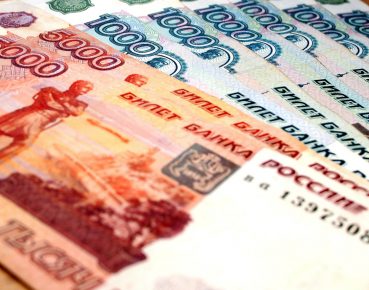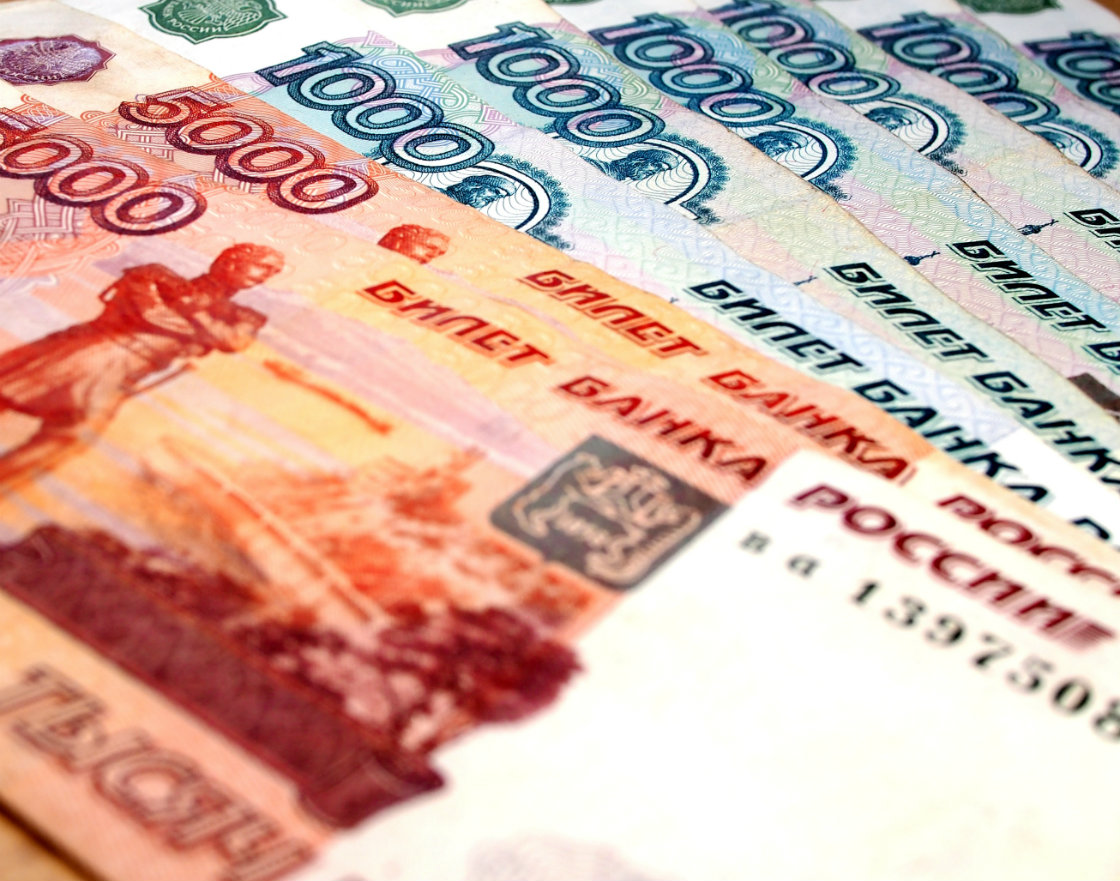
(©Petar Milošević, Public domain)
In February 2014, Russian troops marched into Crimea, and what followed was an incorporation of the peninsula into the Russian Federation. The United States and Europe reacted by imposing economic sanctions on Russia designed to bring the country economically to its knees.
Only a few months later, between June and December 2014, one of Russia’s key export articles, crude oil, declined in price by almost 50 per cent. Economic sanctions combined with collapse of oil prices caused a major financial crisis in Russia. The decline in confidence among international investors in Russian economy caused a massive sell off of Russian assets, leading to a decline in the value of the RUB.
The value of the Russian currency had been relatively stable ever since the end of Russia’s financial crisis in 1998. For nearly 15 years — between 2010 and late 2014 — it was traded for about . In December 2014, the Russian currency depreciated by almost 80 per cent, reaching a historic low of RUB75/USD1 in January 2016.
Although it has been a rather bumpy road with plenty of ups and downs for the Russian currency, it has gained over 17 per cent of its value against the USD since it hit the historical low in January 2016. The RUB has done particularly well in 2019, gaining more than 6 per cent against the USD.
In fact, the RUB has slowly morphed into the best yielding currency in emerging markets, according to a recent survey by Bloomberg. The American financial media outlet asked 57 global investors about the future prospects for the Russian currency. The consensus among the global investors is that the RUB will continue to be the top choice among currency in emerging markets in 2020, providing a relatively safe haven amid fears over the trade war between the United States and China. According to analysts at HSBC Holdings, the RUB could gain as much as 7 per cent from current levels in 2020.
No foreseeable political risk
There are several reasons for Russia’s currency recovery. One has to do with the lack of any new sanctions against the Russian economy coming from the United States and the European Union.
Particularly the US government has become rather cautious about the imposition of new sanctions against Russia amid fears of causing damage to domestic businesses and investors. These concerns fully surfaced in April 2018, when the US Treasury Department attempted to sanction the Russian aluminium producer Rusal and its parent company En+. Besides wreaking havoc on global metal markets, the threat of sanctions against the Russian company caused major concerns among American investors holding Rusal’s stocks and bonds worth hundreds of millions of the USD. Initially considering a revision of the sanction plan, the Treasury Department eventually dropped the sanctions altogether.
The plan to punish Russia for poisoning of Russian spy Sergei Skripal in the UK in August 2018, met a similar faith. Initially, the US authorities were considering targeting Russia’s treasury bills but soon dropped that idea, realizing that it would cause too much damage for American investors.
The European Union resorted to the imposition of asset freezes and visa bans, targeting specific individuals and economic entities. Although this measure might have made the lives of certain Russian individuals more complicated, it didn’t have a major impact on Russian economy as a whole.
With the introduction of new sanctions against Russia being increasingly unlikely, international investors have been slowly regaining confidence in both the Russian currency and the economy as a whole.
Moreover, the pause in political pressure exerted on Russia combined with more stable macroeconomic policies from the Russian government, have significantly weakened the volatility associated with the Russian currency in recent years.
According to the Russian news site RBC, the RUB’s volatility on the financial markets has fallen to its lowest level since the beginning of 2015. For example, in early November 2019, RUB’s volatility reached 8 per cent, compared to a high of 57 per cent in January 2015.
The budget rule
Another major factor contributing to the newly found stability of the Russian economy, and the consequent strengthening of the RUB, is the Russian government’s continuing reliance on the budget rule.
In early 2018, in order to make the future value of the Russian currency more predictable, the Russian Finance Ministry devised a plan to use Russia’s oil and gas revenues to buy and sell foreign currency on the domestic foreign exchange market, in compliance with the so-called “fiscal rule” that had been reintroduced once the economic crisis began receding.
The international foreign exchange reserves purchased by Russia’s oil money have been held by the Russian Central Bank in the form of the National Wellbeing Fund. According to Emerging Europe, foreign exchange reserves held by the Central Bank reached USD530 bn in October 2019, increasing by 50 per cent since its low point in 2015. The National Wellbeing Fund owned by the government was worth over USD120bn.
In December 2019, Russia’s Finance Ministry informed that it plans to stimulate further growth of the Russian economy by spending RUB1 trillion from the National Welfare Fund on domestic infrastructure and loans to foreign companies to buy Russian products.
Besides the large foreign exchange reserves, the Russian economy currently enjoys both a surplus on its budget and current accounts, with both measures reaching the highest levels in 10 years.
It is all these economic indicators taken together which make the Russian RUB so appealing to investors around the world at the moment.
Filip Brokeš is an analyst and a journalist specializing in international relations.


